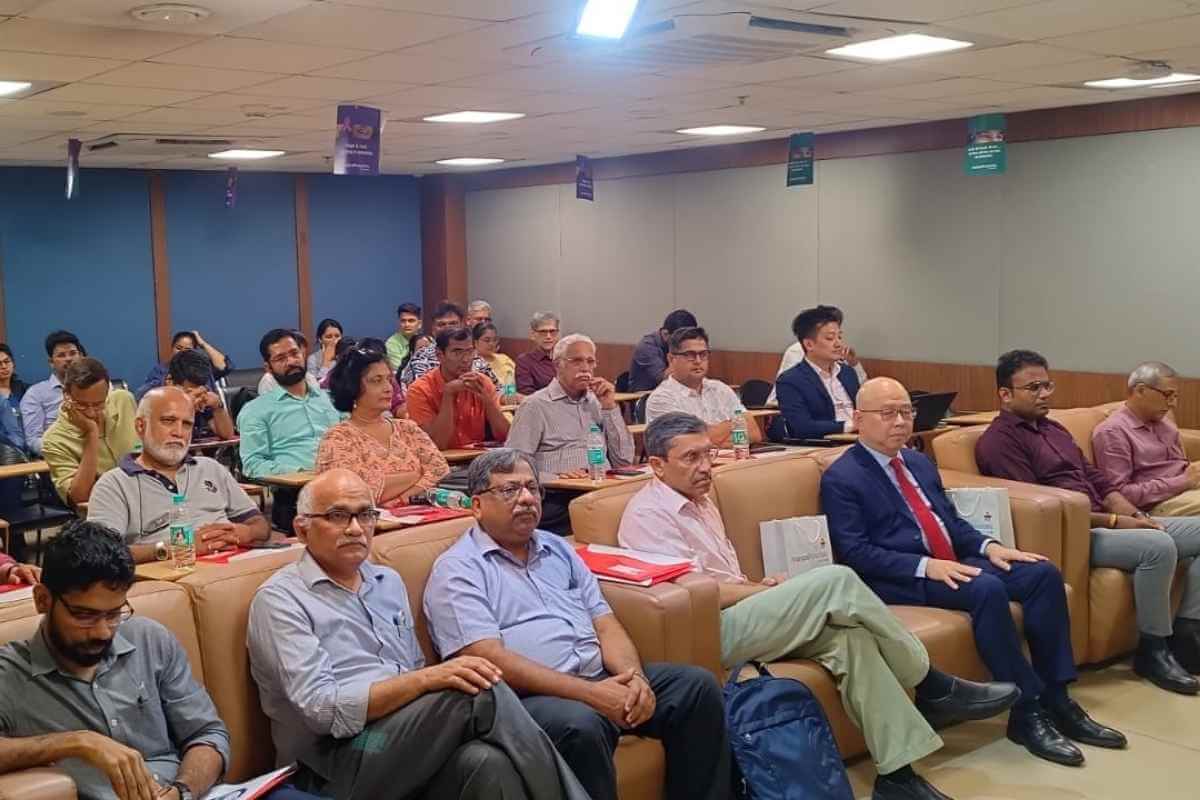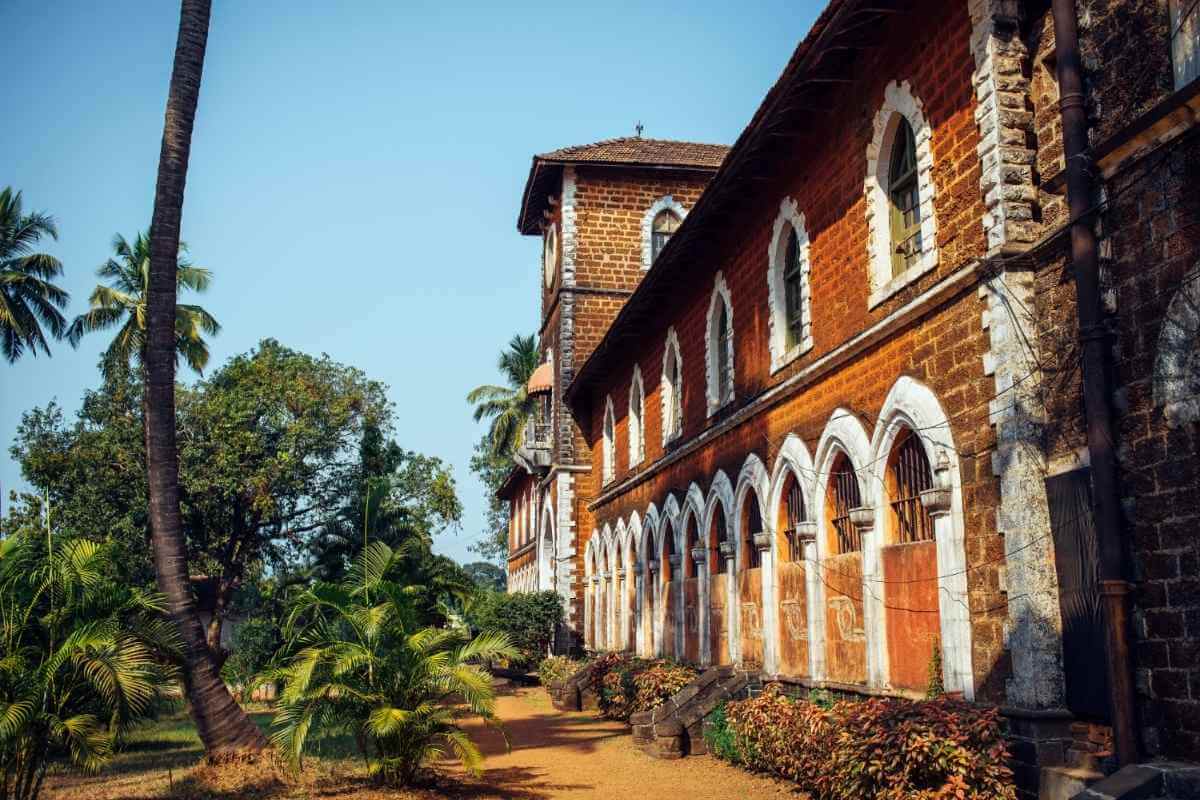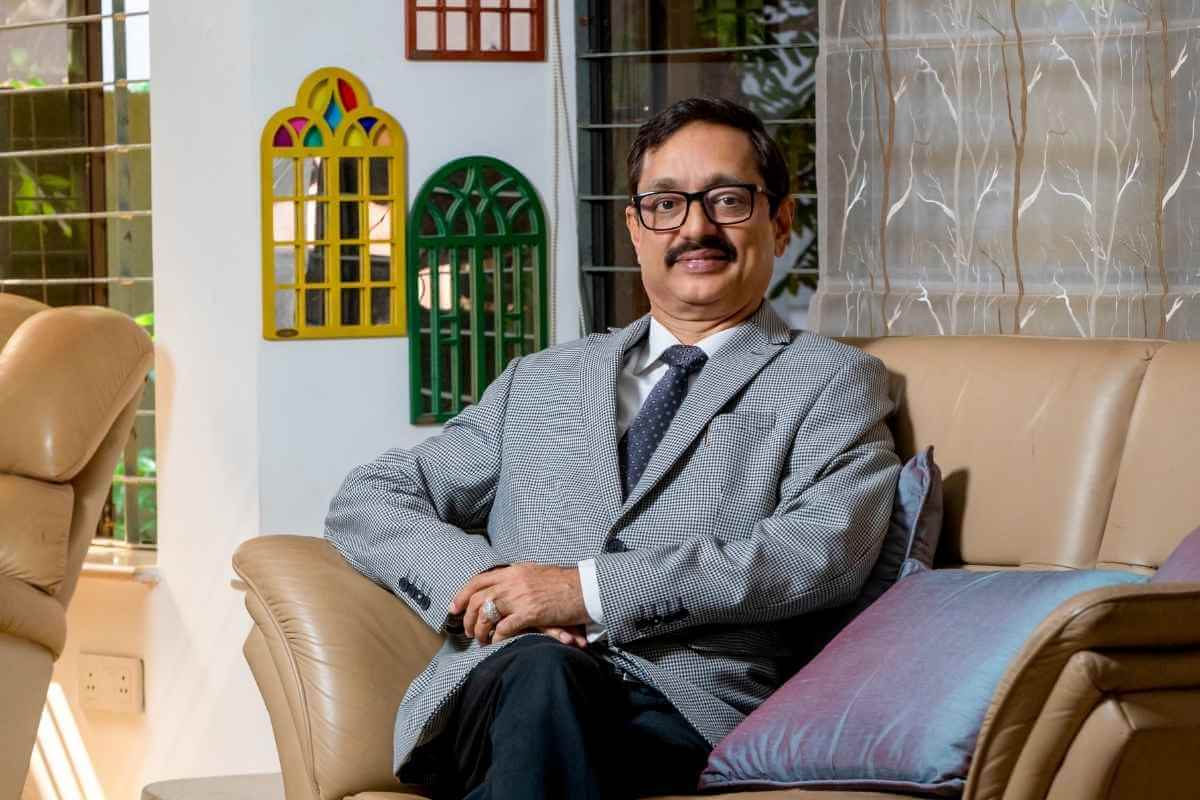Lamanis means the people who belong to Banjara Samaj and these people come down to Goa from the neighboring states and do various types of tiny businesses. Many of them have even learned to communicate with the Russians in their language and foreigners somehow liked them. This in return affects the businesses of locals, although many locals do not carry out the business similar to the Lamanis, somehow Lamanis has been on the target of locals for quite some time now.
Recently there was a picture of a Lamani lady portrayed in the advertisement of Goa in the UK which went viral and even the tourism Minister condemn the act of the UK travel agency who posted this image. This shows the amount of craze in the foreign tourist about these Banjara Samaj people and hence the same was issued in the advt by the travel agency in the UK.
“I condemn the advertisement. We have been working hard to uplift the image of Goa but such a mischievous ad is intended to spoil our reputation. I will ask my department to inquire into the matter and approach the concerned in the UK to rectify it,” the minister told Herald.

Goa is a very cosmopolitan state where one gets to see all kinds of people. Be it the fancy tourist who stays in a seven-star or the humble backpacker who stays at a little guest house, all are welcome here. Goans have a large heart and with their warm and hospitable nature, many from all over the country chose to make this tiny state their home as well as the place of business.
But sadly anything in excess proves to be detrimental. Many businesses these days, especially along the coastal belt, are owned and operated by Lamanis or nomadic tribes of the Banjara Community.
They came to Goa in the ’90s and what had started as a trickle has now become a flood of large proportions. They would sell colorful sarees, bangles, trinkets, and shawls at one point of time, as well as forage for plastic and other scraps in the villages, and have now extended into full-fledged businesses of rent a car, having guest rooms and the like.
The lamanis are considered as a menace by the locals and a video that has gone viral on social media, where these lamanis are harassing tourists at Candolim Beach. Locals have expressed their anger and feel that these lamanis are spoiling the image of Goa.
Over time, the people of Goa have been opposing the influx of Lamanis and now the matter has escalated to one of the dire proportions.
Many locals claim that they are a threat to the Goan identity, land, and businesses. Many are involved in illegalities as well as criminal activities and are often seen creating a nuisance on the beach by disturbing the visiting tourists.
While Goans have always respected all communities irrespective of where they come from, many Goans are of the opinion that they should not be allowed to settle in the State.

Savio Messias, President of Travel and Tourism Association of Goa (TTAG) while speaking to a local daily said that these lamanis and hawkers were a nuisance to the tourists and it is disheartening to see that the Tourist Police are unable to control the lamanis. Lamenting about the lack of cooperation on the part of the Government, Messias said, “It is one of the points we have raised in our white paper but unfortunately the Tourism Minister has not bothered to look into it.”
Revolutionary Goans, an activist group, claims that these lamanis and other nomadic tribes are involved in illegal activities along the coastal belt and are harassing tourists.
Manoj Parab, founder of Revolutionary Goans has said that it is time that all Niz Goenkars united and fought against this menace before becoming strangers in one’s own land.
“We recently heard a Banjara Samaj leader in Goa saying that Lamanis are boosting the economy of Goa but today if you see, they are involved in all types of illegal activities”, Parab said.
Parab also alleged that these lamanis are involved in drugs and prostitution along the coastal belt and their harassment of tourists gives Goa and its identity a bad name.
He even said that these lamanis offer massage, girls and other illicit stuff to foreigners and tourists can’t even walk freely around on the beaches.
Parab pointed out that the biggest menace was the one of open massage which is being carried out on beaches like Baga, Morjim, and a few other beaches.
He stated that the government is turning a blind eye to the activities of these lamanis in order to safeguard their vote bank.
“I appeal to the leader of the Go Banjara community to put a stop to this menace on the beaches and then speak about the economy and other big things,” Parab added.
Way back in 2017, the then newly stated Minister for Tourism, Manohar Ajgaonkar wanted to get rid of the beggars and lamanis from the beaches of the state as he believed they were a threat to Goan culture.
Ajgaonkar who was part of the Maharashtrawadi Gomantak Party (MGP) had said that his ministry would take action against lamanis who were involved in illegal businesses.
“Outsiders, who can uphold Goenkarponn should be allowed to stay, the rest should be chased away. These Lamanis should be stopped from coming to the State. A wrong message is sent because of them and the reputations of Goans are spoilt.” said Ajgaonkar, way back in 2017, while speaking to reporters at a press conference.

In fact, two days after this press conference, the Minister had proposed reviving Tourism Squads, which were dormant in the past, as part of his mission to crack down on illegal activities along the State’s coast.
The squads who comprise of tourism officials and Indian Reserve Battalion (IRB) personnel would be tasked with sharing information on drug peddling and prostitution rackets to the Goa Police.
Mr. Ajgaonkar has also said that the drug trade is flourishing in the State because the police were tacitly sympathetic to the activity. “Our officers know how the drugs are coming in the State. I will tell the CM that wherever drugs are found, the concerned officer of the area should be suspended.”
The Minister also said, “If the beggars, Lamanis, and hawkers carry out their business within legal parameters, and maintain the culture of the State, nobody will stop them from doing their business on beaches.” The Tourism Department was also considering issuing ID-cards to beach shack employees to prevent Lamanis and hawkers from impersonating as shack staff during raids.
North Goa Superintendent of Police Karthik Kashyap stated that the State police have never targeted people who do their work legally. He said the Goa Tourism Trade Act provides for a ban on selling wares, like balloons, on beaches.
But sadly two years down the line, the situation has remained unchanged with more and more lamanis creating a nuisance everywhere. Now their representatives to have begun showing their clout and threatening Goans which have made Goans demand for their ouster from Goa.
We hope that the Government takes cognizance of the issue and puts rules and regulations in place so as to curb this menace.


























1 thought on “Goa’s Image is Spoiled by Lamanis, Claims The Locals”
It’s better to stop only illegal trade and businesses, but here the whole community is being targeted. A Banjara woman picture printed on foreign tourist company make you furious, this is ridiculous. Goan Culture will be preserved if the Banjaras living with peace since years in Goa will be punished? or this is the human nature becoming jealous with those who are born Traders and rule the whole of India.